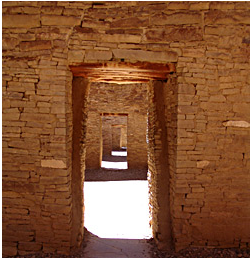Publication Date
4-9-2021
Abstract
Castles – defined as the fortified residences of a militarized elite class – are a global, cross-cultural phenomenon rather than a historically particular development in medieval Europe. Pairing Niche Construction Theory (NCT) with the Lévi-Straussian concept of the House, this research combines architectural, statistical, and geospatial analyses for a sample of castles from medieval European, western colonial, and nonwestern societies to show: (1) castle building is a recurring feature of competition in stratified pre-industrial societies, (2) geography and topography constrain castle location and function, and (3) changes in castle placement, design and elaboration reflect the changing nature of social, economic and military tactics among militarized elite Houses. This research has general and theoretical significance for assessing mechanisms of elite status reinforcement behavior and tactical decision-making across space and time.
Keywords
Castles, cross-cultural, House Societies Model
Document Type
Dissertation
Language
English
Degree Name
Anthropology
Level of Degree
Doctoral
Department Name
Anthropology
First Committee Member (Chair)
James L. Boone
Second Committee Member
Loa Traxler
Third Committee Member
Osbjorn M. Pearson
Fourth Committee Member
Michael Kolb
Fifth Committee Member
Christopher D. Lippitt
Recommended Citation
Kirk, Scott. "Functional Changes in Fortified Places: Strategy and Defensive Architecture in the Medieval and Early Modern Eras." (2021). https://digitalrepository.unm.edu/anth_etds/193

